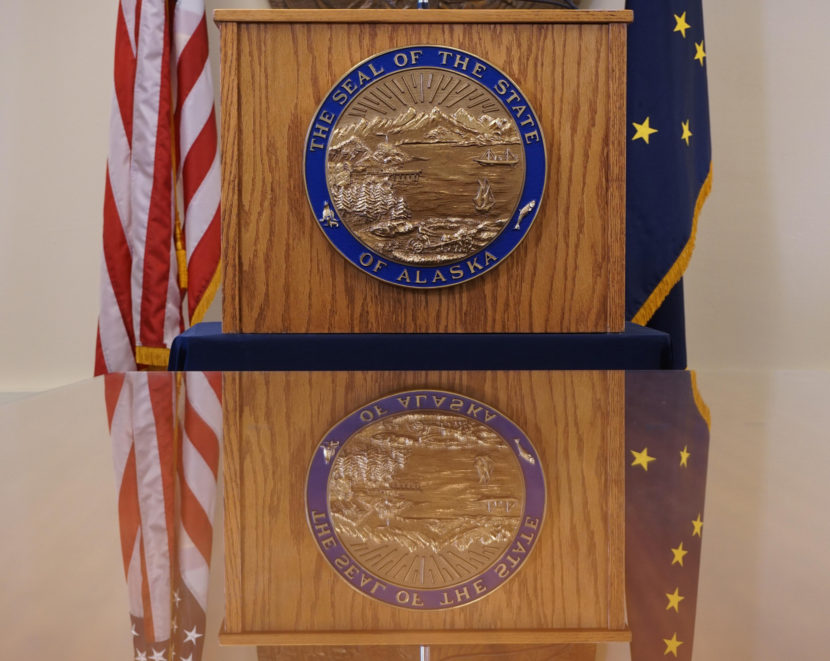
One of the budget vetoes announced Wednesday would eliminate $430 million in funding for oil tax credits. It’s the second year Gov. Bill Walker has used his veto power to cut funding for the program.
Walker is now under fire from industry representatives and lawmakers who say the state is backtracking on payments it already owes and still must pay.
The credits were designed to encourage companies to explore and develop new oil fields in the state. But Walker said Alaska simply can’t afford it right now.
“In some cases we’re paying as much as 85 percent of the cost of some of the projects. That’s a pretty heavy lift when you’re basically borrowing money to pay those costs on that,” Walker said.
The veto doesn’t let the state off the hook for the credits it already owes, it just delays the payments.
Benji Johnson is president of the small Texas-based company BlueCrest Energy that’s developing an oil field in Cook Inlet.
“It’s basically just like tearing up your credit card bill. ‘Oh, I don’t want to pay it this month, just tear it up,’” Johnson said. “… the state can bully their way through, but it’s not saving one penny by doing this.”
Johnson said his company has received about $25 million in tax credit payments from the state in the last few years. But, according to Johnson, the state currently owes another $35 million and he anticipates filing for $15 million more by the end of the year. Now he doesn’t know when he’ll see those payments.
“While we were aware … this veto could happen, everything we heard from the administration during this last session was that ‘Oh, that’s not going to happen again. We’re going to make sure that it’s fully funded.’ We were told that by pretty much everyone that we talked to.”
Johnson said BlueCrest has been relying on the credits to help fund its drilling operations. He said the company has the money to get started, but may not be able to continue if oil prices stay low or drop further.
Some companies have used the promise of tax credit payments to bring in outside investors. Johnson said the veto makes that option less likely for his company.
“In the past, banks have been willing to loan that money at fairly low interest rates because they could be absolutely certain that the state is going to pay that. Now that certainty has absolutely gone away. The state has no credibility at this point.”
Lawmakers were also swift to criticize the veto.
House Speaker Mike Chenault, R-Nikiski, said the state looks unreliable when it doesn’t make payments it guaranteed to companies.
“I think it probably hurts independents. I think it hurts development of Alaska, whether it’s in Cook Inlet or Prudhoe Bay and I think it’s, it’ll probably have detrimental effects into the future.”
Lawmakers are scheduled to reconvene for a special session on the budget in mid-July when they could, in theory, override the vetoes.
